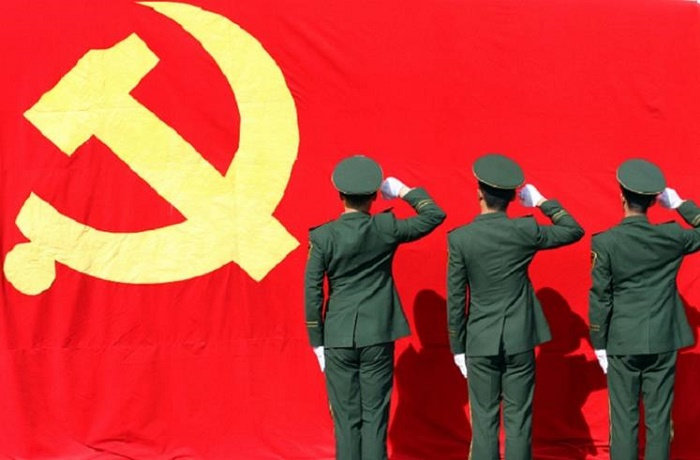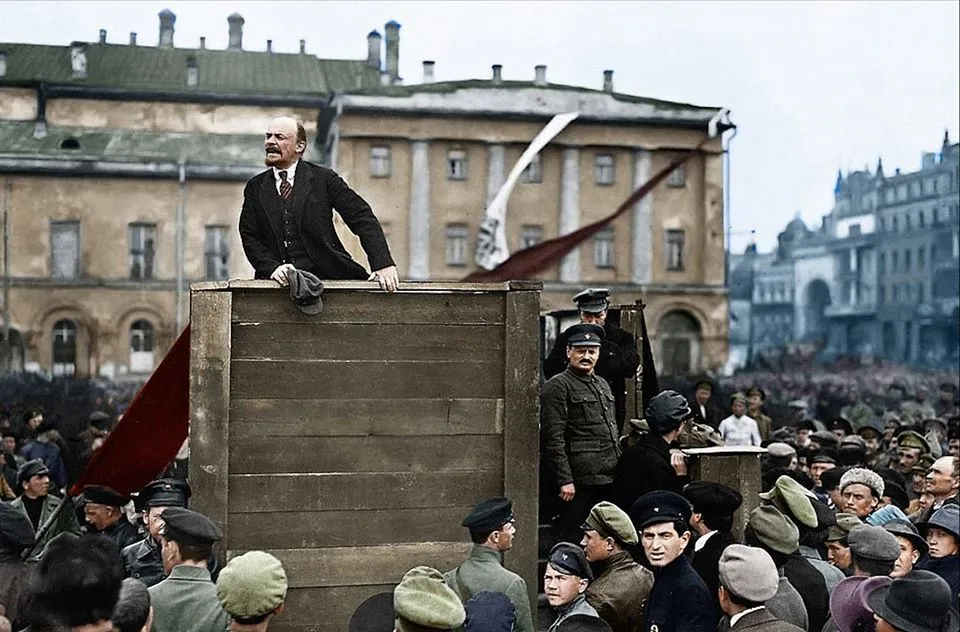Mudabicara.com_ Communism is one of the political and economic ideologies that has been part of the long journey of world ideological historical struggles.
As one of the political and economic ideologies, communism has been a means of struggle in various countries to create a just, classless society.
Indonesia itself once had a party called the Indonesian Communist Party (PKI). But unfortunately in the midst of the power struggle, the PKI party was considered to be the mastermind behind the death of several generals during the G30S PKI incident.
Therefore, communism has become one of the illegitimate ideologies in this island nation. Nonetheless what exactly is communism and what values do they stand for.
Read Also : What is Fascism? Definition and Characteristics
Now! this time, Mudabicara will review articles about what communism means, its characteristics, the value of the struggle to which countries adopt the ideology of communism. For more, see the following reviews:
What Is Communism?

Based on the Encyclopaedia Britannica , the notion of communism is an ideology of political and economic doctrine which abolishes private ownership by making public ownership through communal control.
The ownership in question is ownership related to the means of production and the use of natural resources which should belong together.
Communism believes that human beings are essentially social beings so that in the political system of communism the view of life is no longer a personal problem but a common problem for both the state and the party.
On the other hand, the socio-economic system of communism emphasizes shared ownership which is coordinated through state power.
Where the understanding of the political ideology of communism aims to create a just society without social class. This means that communism envisions an orderly society in a market mechanism based on shared ownership.
Read Also : What is Anarchism? Definition and Characteristics
All forms of means of production and capital will fully become joint property with the goal of general public prosperity with the government’s command line.
The interests of the struggle are only in groups and groups so that there is no social order that creates economic inequality.
The term communism itself can also be interpreted as class struggle and power relations. Communism forbids individual people from accumulating wealth because all forms of wealth must be managed by the state.
Economic activity is centered on the state and the state is tasked with meeting all the economic needs of its citizens equally.
A Brief History And The Defeat Of Communism Ideology
As a political and economic ideology , communism began to emerge and develop around the 1840s with the initial originators, namely Karl Marx and Friedrich Engels.
Through a book entitled Political Manifesto, which was published on February 21, 1848, the two figures tried to fight against the narrative of capitalism.
The phenomenon of capitalism which gave birth to an economic class between capitalists and workers became the starting point for the analysis of communism thought.
For Marx, capitalism was born because of individual ownership so that different relations emerged between workers, investors and industry.
Read Also : Totalitarian Political System, Definition, Types and Characteristics
The struggles of Marx’s thoughts also resulted in three major books entitled Das Kapital which were published in three volumes in 1867.
Gradually the European people began to become aware of the existence of economic disparities which resulted in communism transitioning to a narrative of Marxism.
With the dream of a classless society and a just political economy order, communism spread to many parts of the world as a political ideology .
The Bolshevik Revolution and the Glory of Communism

The peak of the success of the political ideology of communism was when there was the Bolshevik Revolution led by Vladimir Lenin in Russia on November 7, 1917.
Under Vladimir Lenin, the political ideas and notions of communism became the state ideology and expanded to various other countries in Europe and even to the continents of Asia, Africa and America.
Lenin’s success in proclaiming the Soviet Union as the first socialist-communist country in the world had an extraordinary geopolitical effect.
This is proven because many countries have adopted the ideology of communism as an ideology in carrying out state practices.
Even based on the book History of Communism and Marxism-Leninism: From Beginning to Decline , published by Cambridge Stanford Books in 1985. Communism became one of the political ideologies embraced by nearly a third of people in the world.
Read Also : Dictator Government System, Definition, Causes and Characteristics
On the other hand, the phenomena of the world wars of World War II (1939-1945) and the Cold War (1947-1991) were inseparable from the struggle between the ideology of communism and the ideology of liberism.
The ideology of communism is centered on the Soviet Union and the ideology of liberalism is on America so that there is a narrative between the Eastern Bloc and the Western Bloc.
However, along the way, the Soviet Union, which became the driving force behind the ideology of communism, collapsed in 1991. This resulted in the collapse of communist power as well.
This phenomenon became a dark point of communism ideology because many countries adhering to communism slowly collapsed and replaced their ideology with American-style liberalism.
Features of Communism Ideology
1. One Party System
In carrying out the political system of government, countries that adopt the political ideology of communism usually use a one-party system.
Even though at the time of the contest there will be shadow parties, in practice all important positions and roles related to politics, the economy and the state are controlled by that one party. One example is the Chinese Communist Party.
2. Classless Society
The ideological ideal of communism is the struggle of a classless society that does not differentiate people from one another. In communism there are no rich and poor because all resources and means of production are shared property.
3. No Private Property
All companies are state-owned, there are no companies that are privately owned and there are no private property rights.
Read Also : Monarchy Government System, Definition, Types and Characteristics
All forms of economic resources are fully controlled by the state and the state is obliged to guarantee all forms of the needs of its citizens.
4. International
In carrying out the struggle of classless humans and people, the narrative of communism is not limited to state territorial lines but international.
5. Centrist Group
In implementing its struggle, communism does not operate individually but is based on collectivism. This means that the interests of groups and groups are more important than individual interests.
Countries that Adopt the Ideology of Communism
As a popular ideology, communism has been the political ideology of many countries in the world. Although now the ideology of communism only survives in various countries.
Read Also : Authoritarian Political System, Definition, Types and Characteristics
Countries Have Adopted Communism Ideology
1. People’s Republic of Angola (1975–1992)
2. People’s Republic of Benin (1972–1990)
3. Polish People’s Republic (1944-1989)
4. Romanian Socialist Republic (1947-1989)
5. Albanian People’s Socialist Republic (1944-1992)
6. People’s Republic of the Congo (1970–1992)
7. People’s Democratic Republic of Ethiopia (1987-1991)
8. Derg (1974-1987)
9. People’s Republic of Mozambique (1975–1990)
10. South Yemen (1969–1990)
11. Democratic Republic of Afghanistan (1978–1992)
12. People’s Republic of Cambodia (1979-1989)
13. Democratic Republic of Cambodia (1975-1979)
14. Soviet Union or USSR (1922-1991)
Read Also : Liberal Democratic Political System, Definition, Types and Characteristics
15. East Germany (1949-1990)
16. Hungarian People’s Republic (1949-1989)
17. Bulgarian People’s Republic (1946-1990)
18. Socialist Federal Republic of Yugoslavia (1943-1992)
19. Czechoslovak Socialist Republic (1948-1989)
Countries Use the Ideology of Communism
1. North Korea
2. Because
3. Eritrea
4. People’s Republic of China
5 Vietnam
6. Laos
That’s all for explaining the meaning of communism this time, see you in the next discussion of political science. Happy reading!

